Archive
2021
KubaParis
Lukas Panek
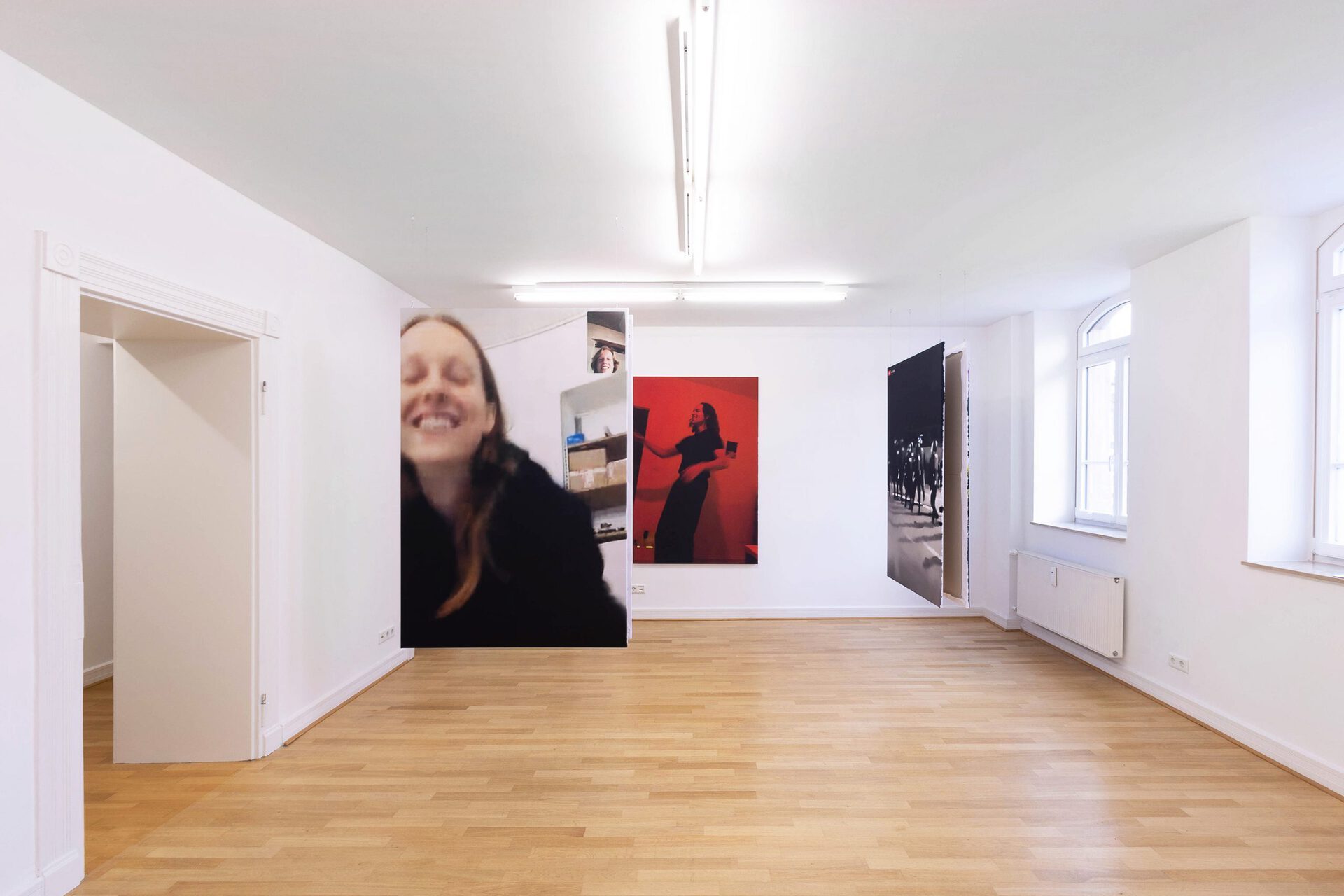
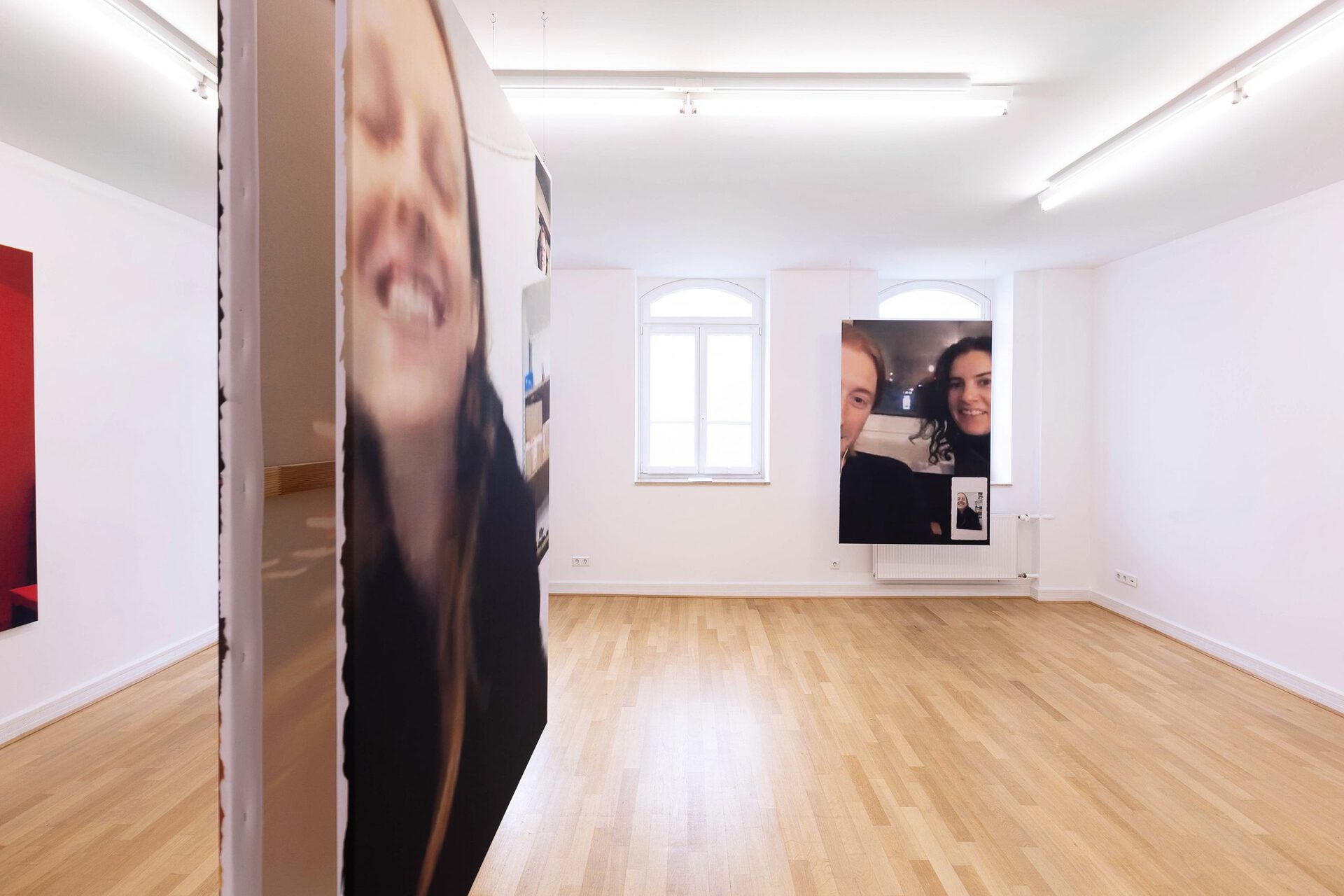
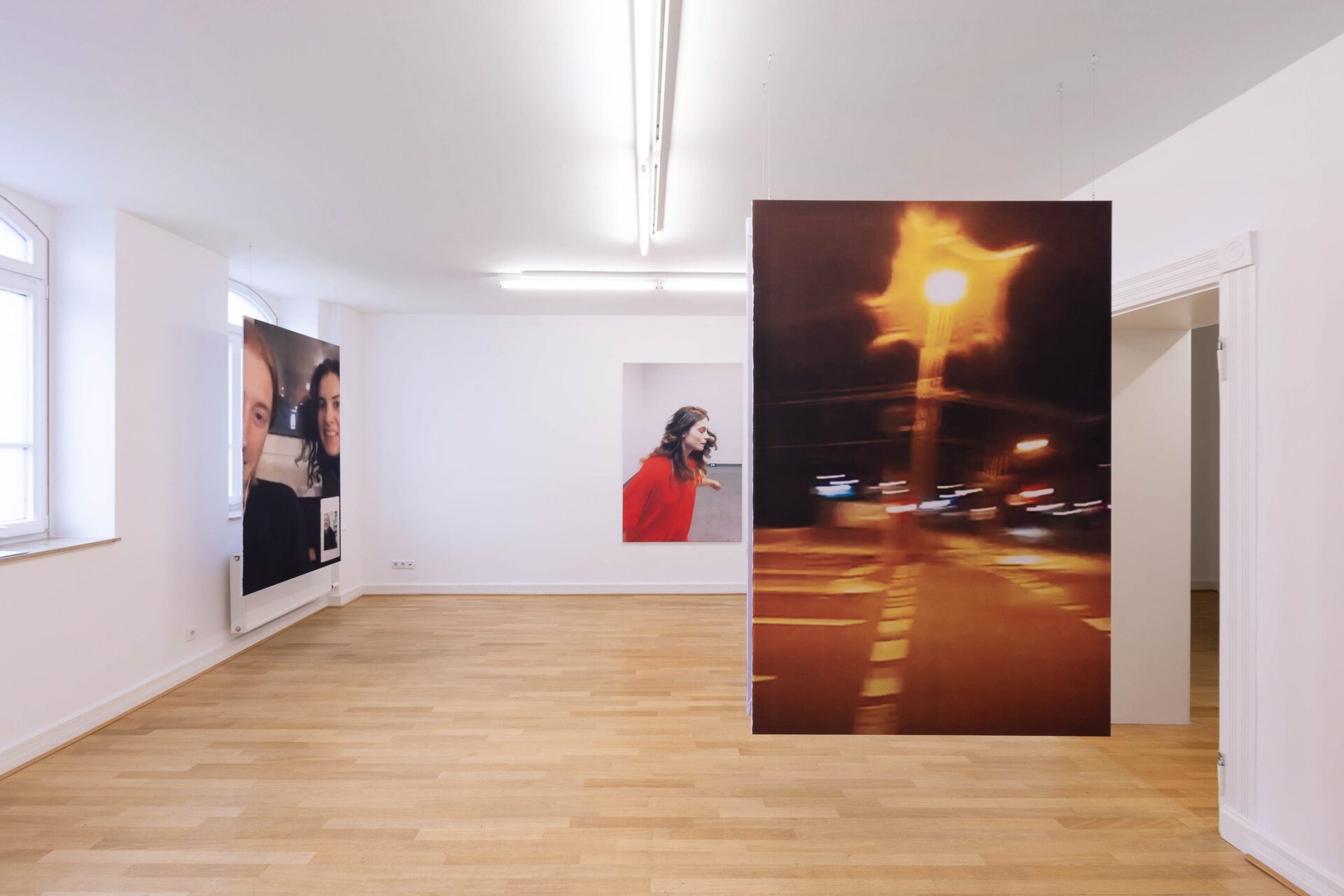
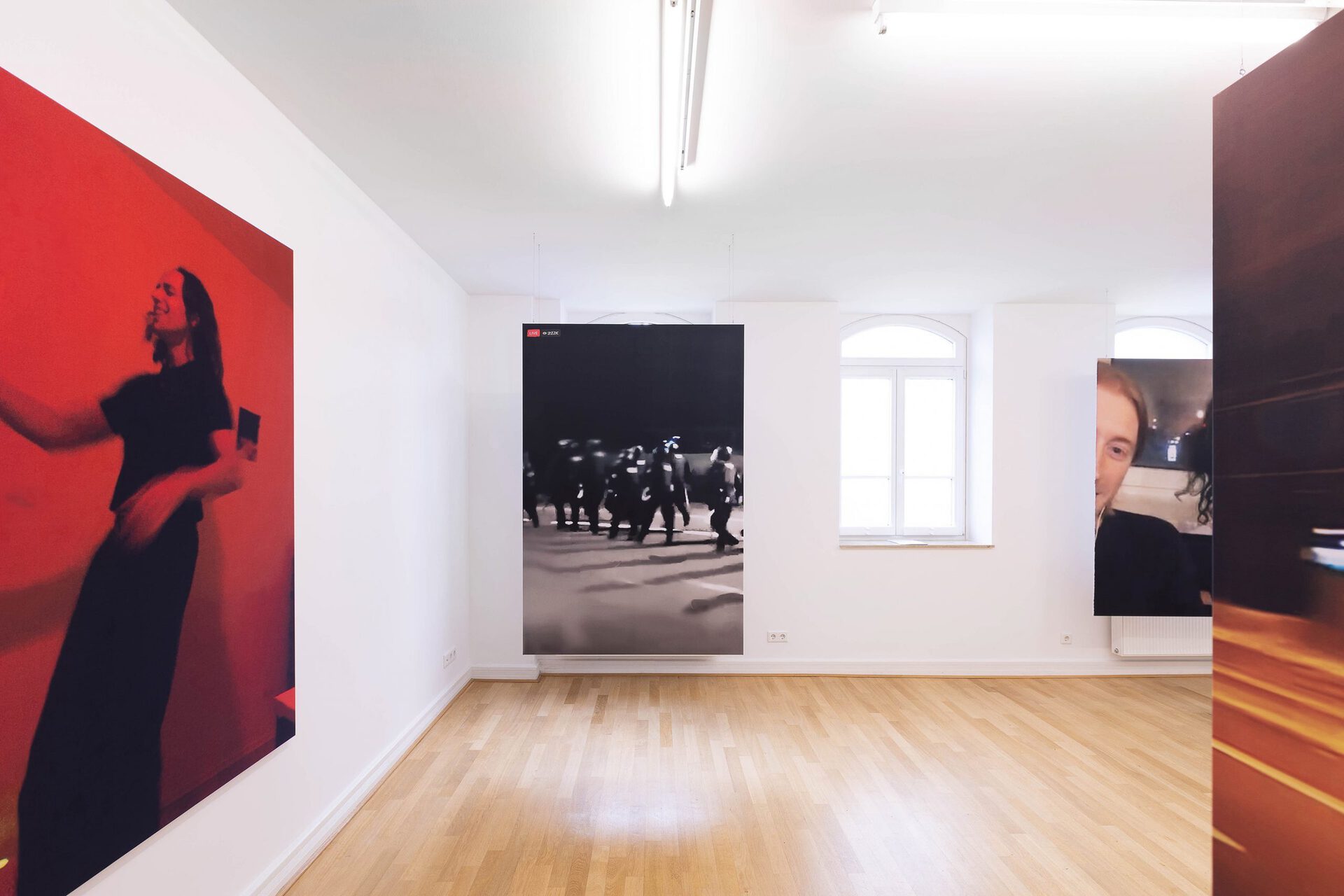
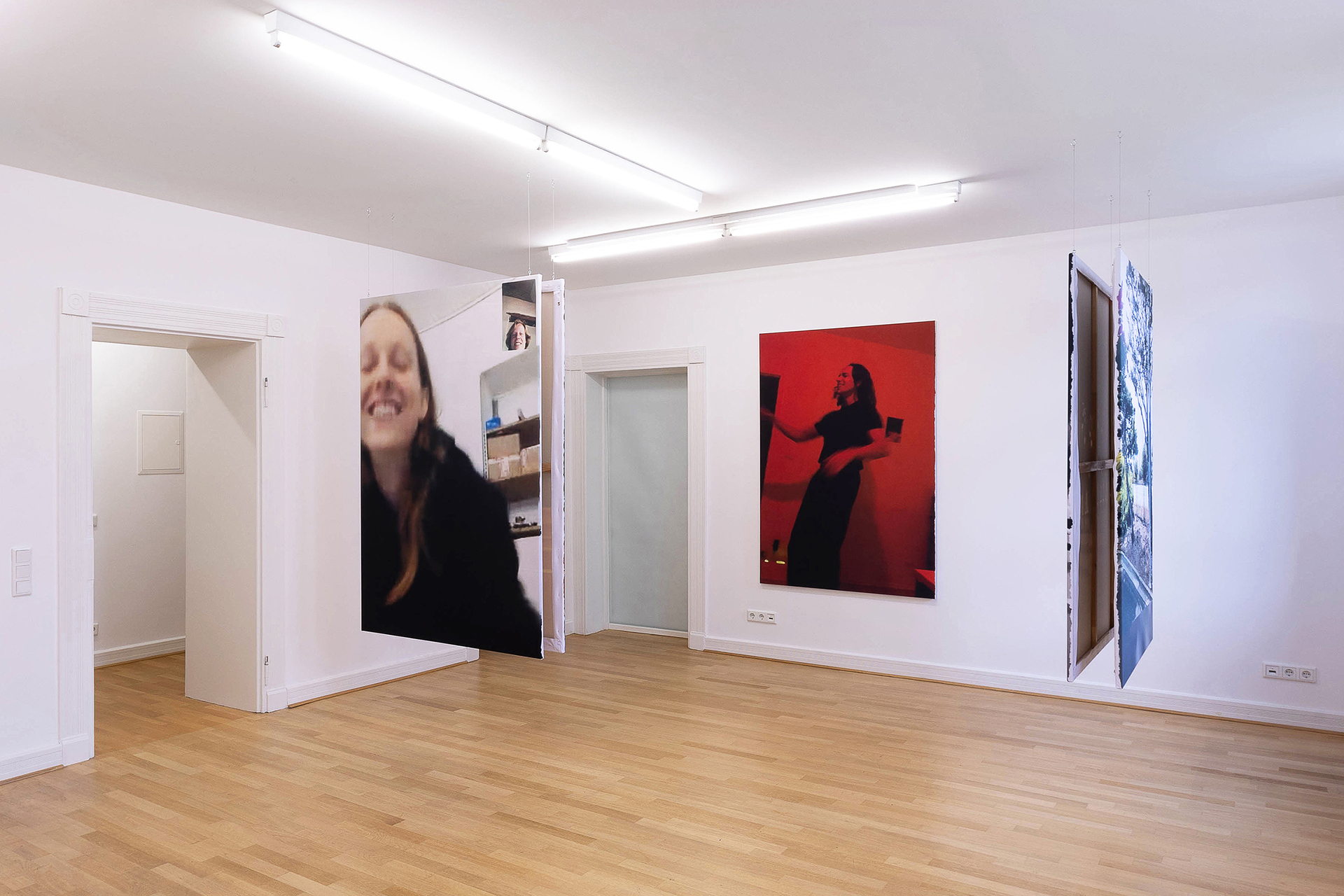
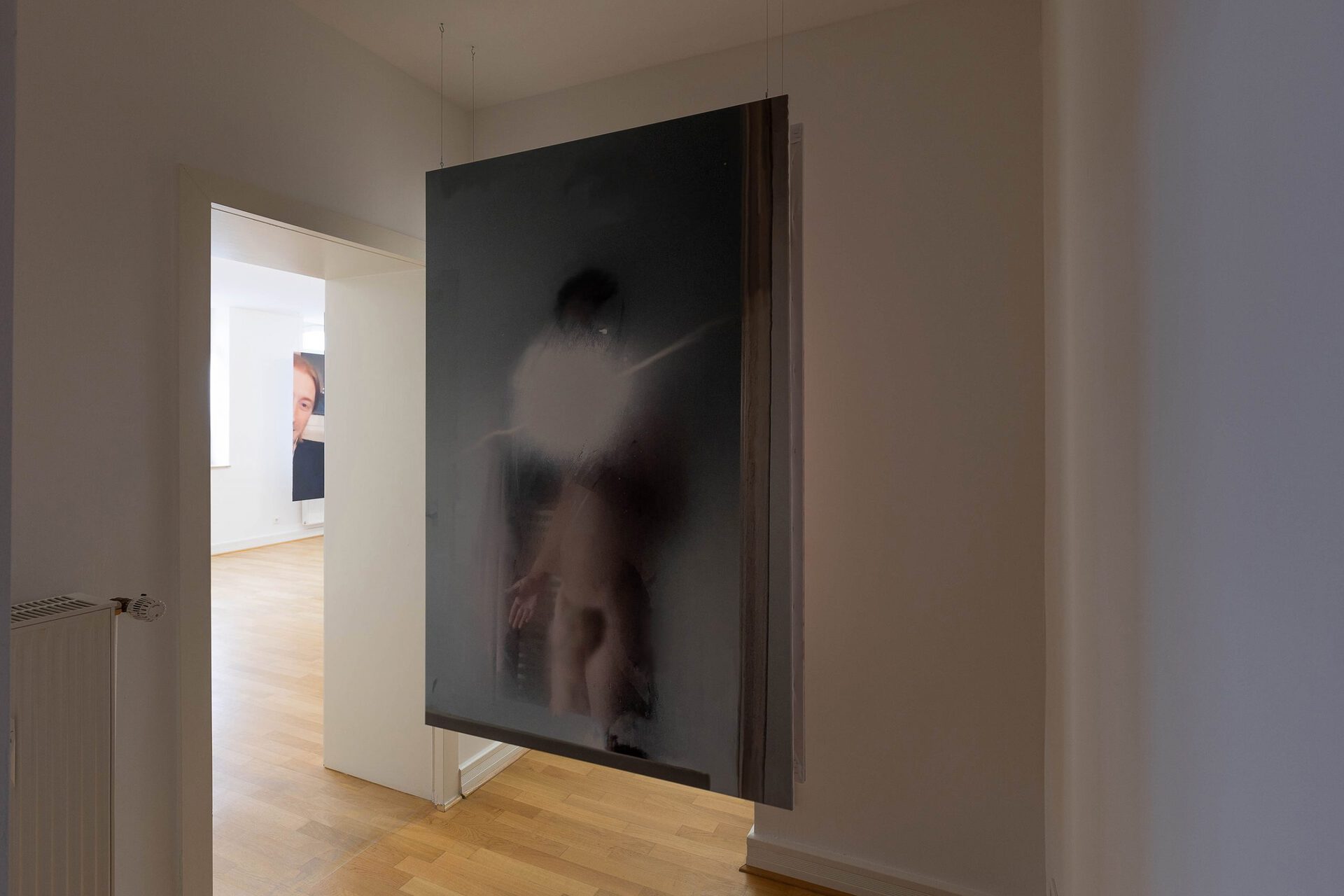
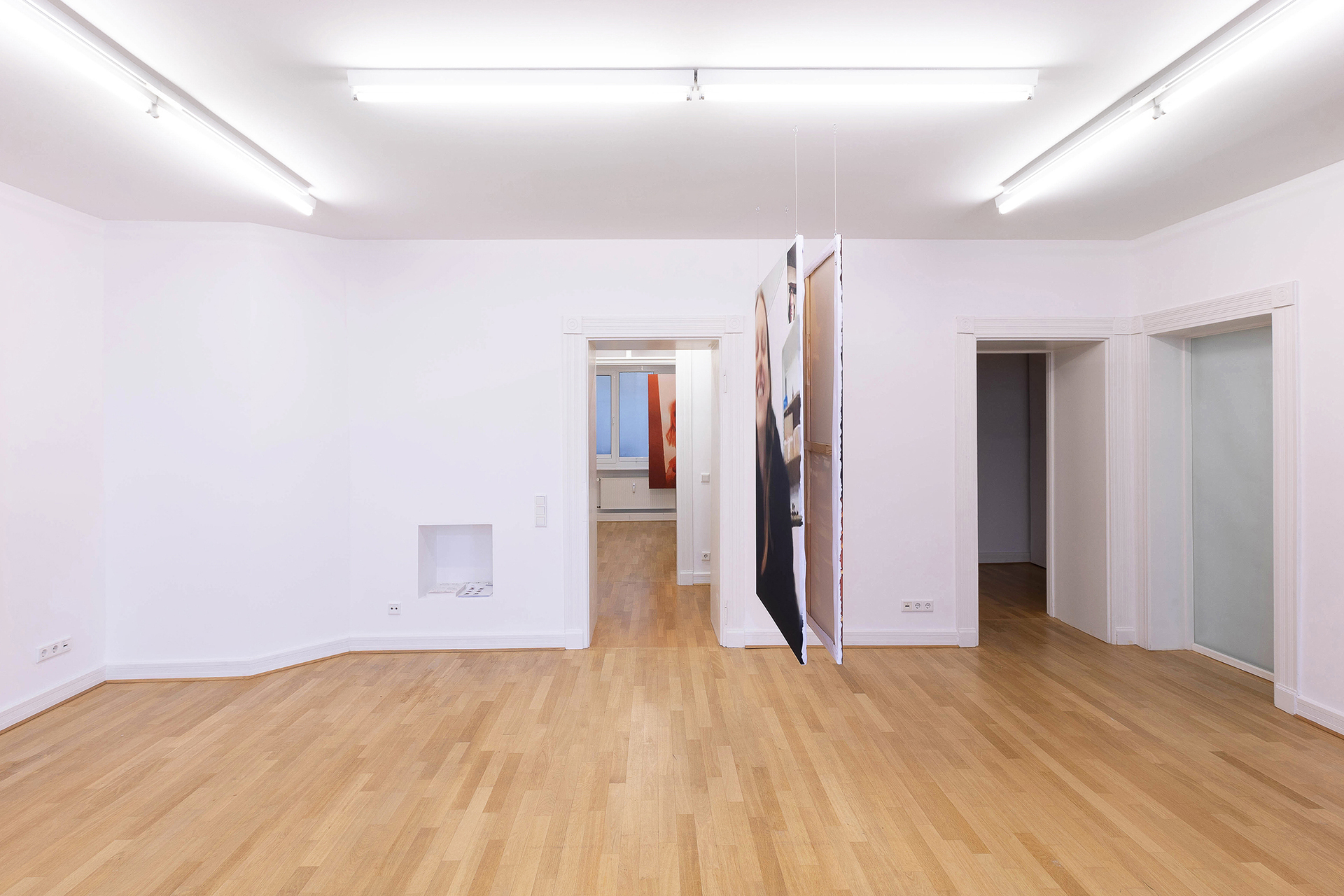
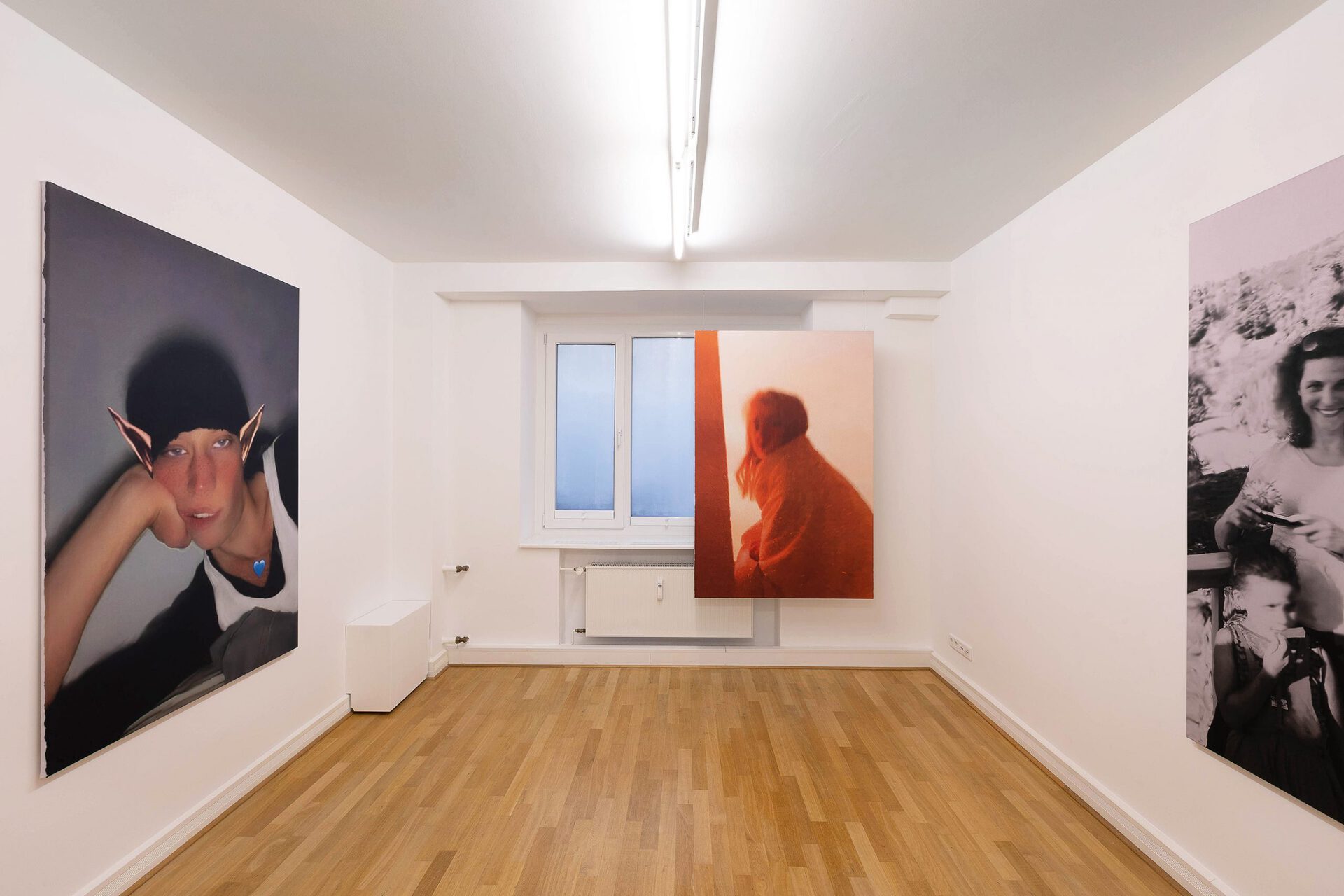
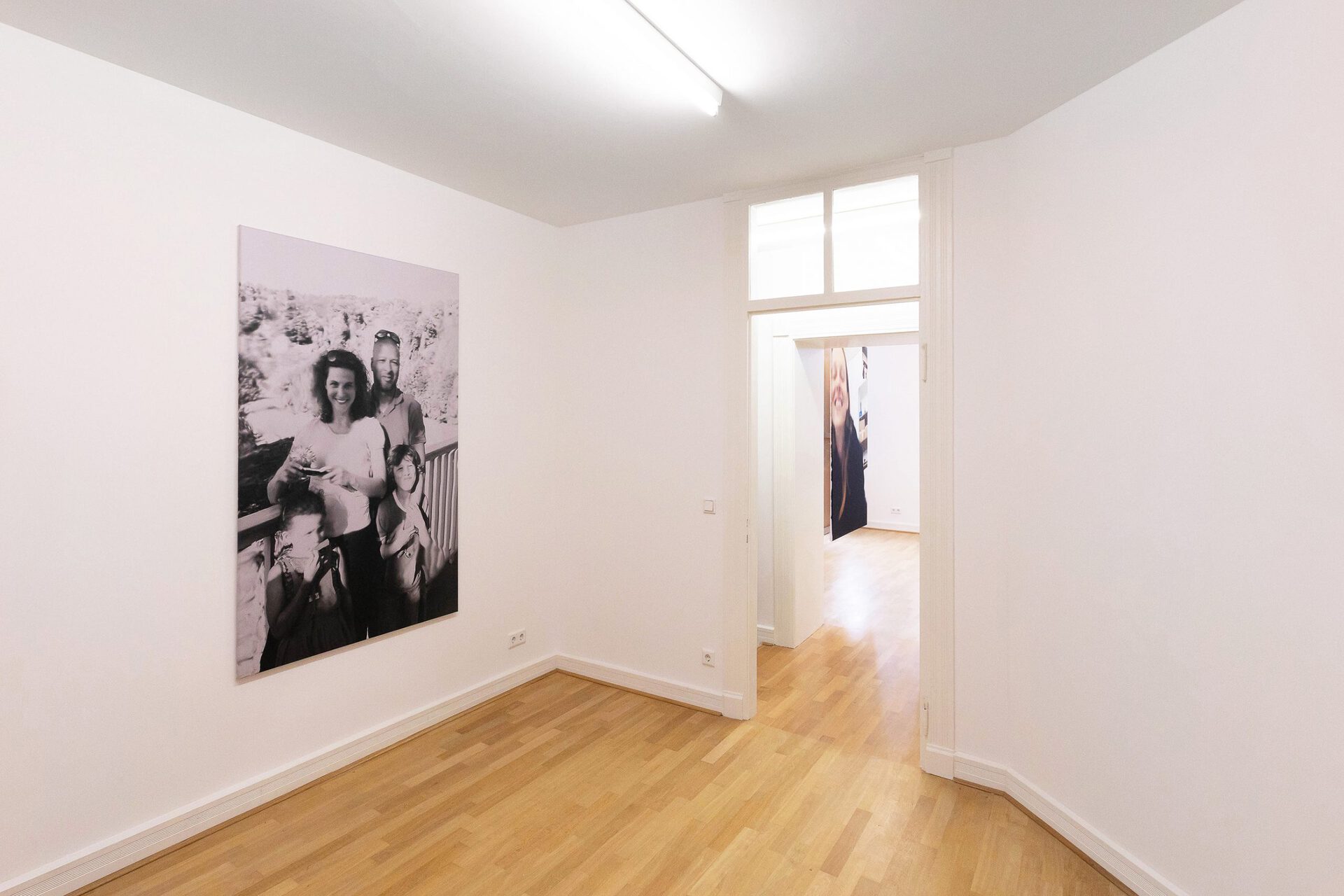
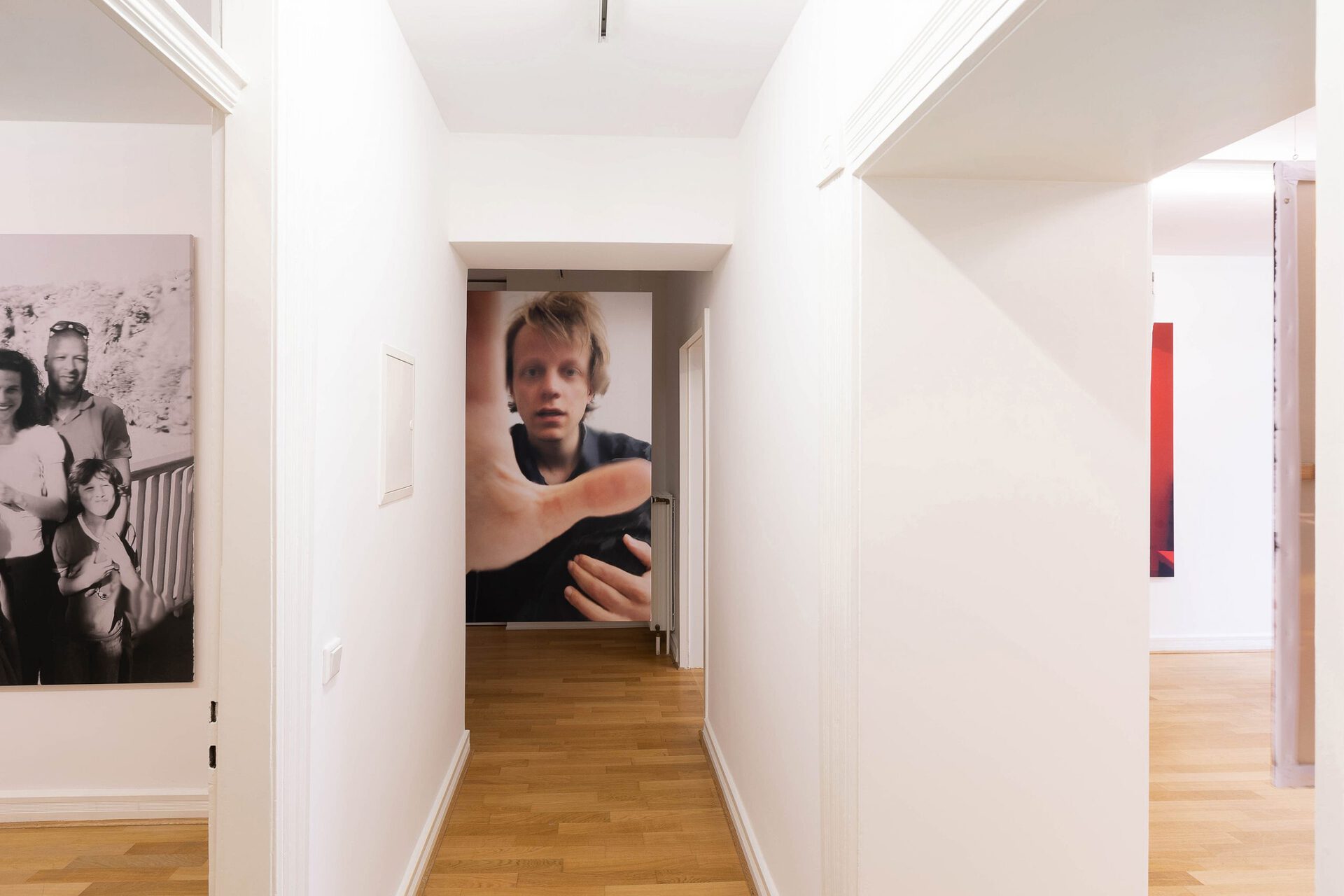
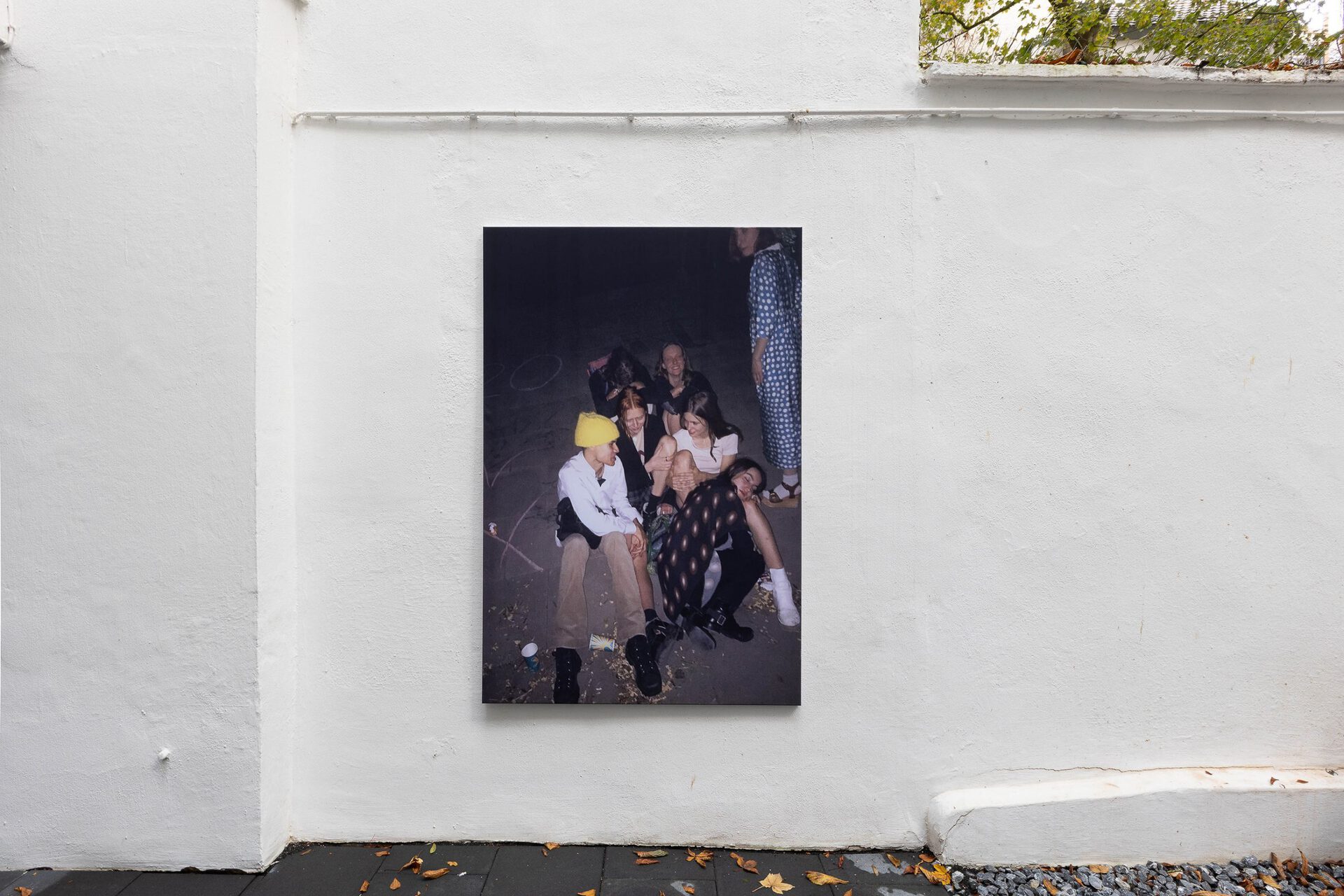
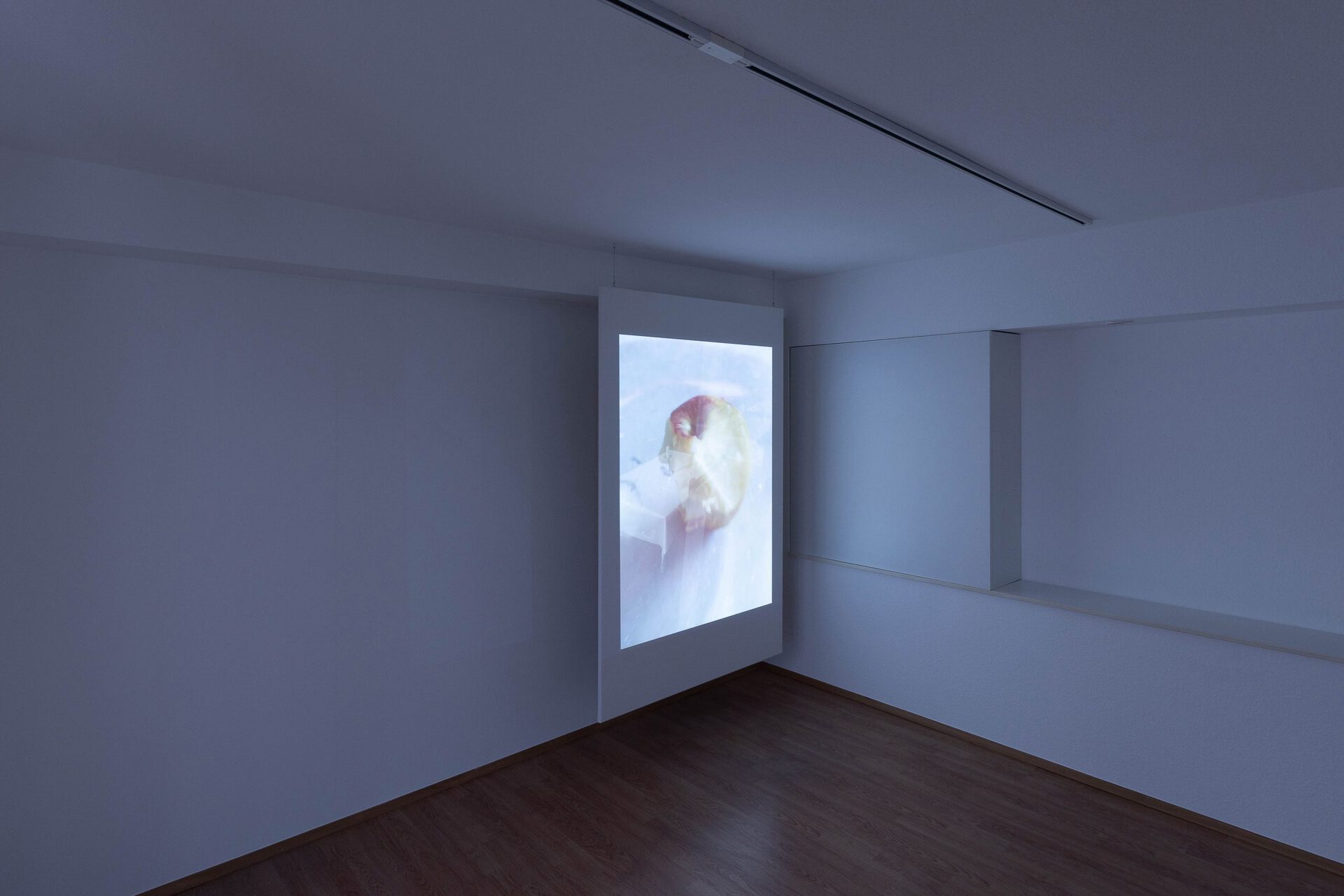
Location
Mook Gallery, DüsseldorfDate
21.10 –25.11.2021Photography
Courtesy Mook GallerySubheadline
text by Dara JochumText
Dear Lukas,
I hope you’re well. First I wanted to thank you for the edition you sent me, Street, which we‘ve finally put up next to the window out of which I look out over South London. I like the idea that we’re looking at the same image. Both living on the 9th floor of 1960’s brutalist social housing icons, you in Berlin, me in London, in the presence of this blurry streetlight. When I first asked you where the image was from you couldn’t remember. Some random street, some image you found on the internet. The line between anonymously sourced and personal image blurs, you write, which is true, but it also doesn’t matter because you giving it to me makes it yours and mine, too.
Thinking back, it’s funny to have met you in this dark, weird isolation time in Berlin, me having fled plague-infested UK that seemed to be drifting further and further away from the rest of Europe. When it got too cold to trudge around the canal we’d drink Bio Company wine in your kitchen, our short but tender love affair situated unusually quickly around your home. Every time I’d come round the living room had become a little less like a living room and more like a studio. You’d taken out the furniture, then the floor, and then you painted the windows with buttermilk, blocking out your amazing view, which I still don’t understand. I had never met your friends, but there were all around us in your studio, Madga, Robin, Shade, other young, good-looking people I had seen out at openings in the past. I’d come and work in your studio while you’d either be in the kitchen making that amazing cardamon-infused rice, or on your desktop, scanning through the thousands of images you’d collected. Photographs you took, pictures you found on Reddit, screenshotted of your friends Instagram stories... Sometimes an image that I’d seen on your desktop would re-emerge printed out on a sheet of A4 and stuck to the wall with bluetac. If it made the cut there, it was sent to the printer and arrived back flat packed to be put up on a stretcher. I understood that there is whole lot of consideration into what looks so effortlessly fleeting. You live with images before you release them out into the world, keeping them so close until they’re distorted to abstraction. “What do you think people who don’t know the people in your pictures think of them?” I asked. “I don’t know, I never really think about them” you said, “these are for my friends”.
Speaking of, I met your friend Julia at Frieze last week. We talked about how you have this wonderful way of sustaining friendships from a distance and communicating through images and agreed that that in a way feels like a natural continuation of your practice. Is it weird for a friendship to feel like a piece of relational art? Maybe, but I’m putting it down to the mindfulness you treat them with.
I was thinking it makes complete sense that your studio is in your home, right in the centre of the stomach of the urban beast: merging living and working, life and art. Your paintings acknowledge the assamblagic nature of human and societal fabric. What I find most intriguing about your work is that it materialises between people: a by-product, or a natural synthesis maybe, of life itself, instead of a mere reflection of it. If we accept that meaning is produced in context and acts of collaboration, and not inherent in objects themselves (see Irit Rogoff: Academy, 2006), we must extend this notion to the work of art as something that is also constantly being re-negotiated: it’s still up for grabs, so to say, ready to be activated by an amalgamation of subjectivities. Just as your paintings — and beyond that your extended practice of exhibition making, book making, artist interviews — do not have immanent meaning: Through appropriation and recontextualization of existing images, you demonstrate this exact notion, the deliberate space opened for reflection and recursion, foregrounding vast fields of possibility. In other words: Meaning making, and this is where the subversive potential of art lies, it takes place neither within the object, nor the subject, but the spaces in between.
A similar thing happens in cities, and more so in top-down centrally planned societal infrastructure. Your Düttmann and my Goldfinger were both built in times where architecture was seen as a highly ideological bio-political tool, which would shape the lives of its inhabitants. Although constructed within determined parameters, it takes its people for a city to grow into itself — and as we see in the case of these socialist ideals, that happens often divergent to the plan.
I had this dream recently where a lot of crazy shit happened, a series of apocalyptic even of which I can’t remember many. But one thing I remember very vividly was that I was in my grandmother’s house, in this small Austrian village, with my boyfriend. Some tall, dark-haired guy I’ve never seen before, which is weird because I always thought it was impossible to make up people in dreams. Anyway, our relationship was already at the stage where you kind of knew it was over. We were supposed to go somewhere but he ended up leaving alone, me staying behind in the house. Shortly after, the ground began to shake, and winds began to blow like crazy. Looking out onto the veranda I watched the neighbours SUV begin to lift off the ground and smash though the force of the wind onto the garage walls. The ground was now moving in great, rhythmic waves and as the winds got stronger the whole neighbours house began to disseminate, being pulled up brick by brick into the air. I remember thinking: this is it; this is the actual climate apocalypse. We’ve dodged these things so far just reading about them on the news or watching devastated landscapes on TV, feeling a slight shudder of pity and then forgetting about them moments after, but now it was here. Eventually the storm began to calm, leaving our house basically unharmed, and only then did I remember my boyfriend who had just left. He, too, had probably been lifted into the air, just like the house, and was either still being whirled around or had come crashing down in a hideous death. When I told Philippa about the dream, she asked me what I thought about not having left with him. I didn’t know how to answer that question, I was more concerned about the world ending than about him. I thought of you because nobody loves the news like you do. But it made me think about the difference between knowing something and feeling something. I could really feel it in the dream.
If it wasn’t for Paris, I’d come join you in Düsseldorf. Good luck with everything there dear Lukas,
9th floor to 9th floor,
Dara
xxx
Text by Dara Eleanor Jochum
Dara Jochum